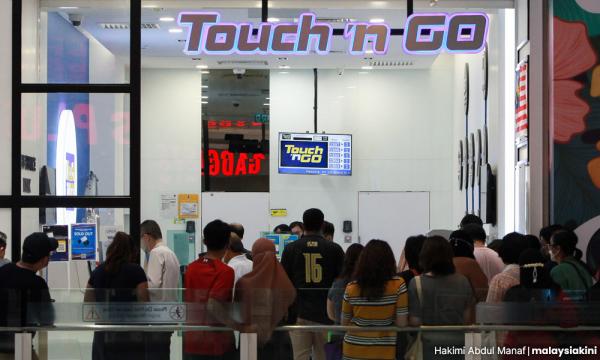LETTER | Thank you, Prime Minister Anwar Ibrahim, for finally admitting that Touch ‘n Go is a monopoly and that despite two decades in operation, there have been “no convincing developments in the system that has been stagnant”. Further, you have added that there was a need to review the system.
It is indeed great to hear that the Malaysian Competition Commission (MyCC) finally “stands firm with the public” and expects to end “the Touch ‘n Go Monopoly” in line with public demand”.
Five years ago on Oct 30, 2018, the Federation of Malaysian Consumers’ Associations (Fomca) officially filed a complaint on the abuses of Touch ‘n Go including excessive pricing, poor service quality, and not adequately addressing consumer issues and complaints.
We called for an end to the monopoly and liberalising the sector to accept other forms of payments. With liberalisation comes better prices, better service quality, and better addressing of consumer issues and complaints.
New entrepreneurs could also enter the market. Consumers would have a choice and thus will choose based on the best value for their limited money.
Two years later, on Aug 28, 2020, MyCC officially informed Fomca that the issues raised “do not raise any competition concerns”.
These issues, it claimed, were not competition issues but “consumer issues” and thus decided to “close the complaint”.
From the consumer’s perspective, all issues impacting consumer wellbeing are consumer issues.
When Fomca again raised the issue of monopoly, the excessive pricing of the RFID, its inefficiency, and called for liberalisation of the sector, MyCC would claim that “accusations of Touch ‘n Go’s monopolistic behaviour (by Fomca) was a clear misconception”.
It continued to claim that the abuses of the monopoly were not a competition issue but a consumer issue, thus it had no jurisdiction. Again, all issues affecting consumer wellbeing are consumer issues.
Fortunately, what was clear to all the rakyat as well as to the consumer affairs minister but was not clear to the MyCC – was that the abuses of Touch ‘n Go were because it was a monopoly; consumers had no alternative to choose a product that was more affordable, provided better quality services, and more receptive to the issues and complaints.
The consumer affairs minister then on his own initiative and in response to the sufferings of the rakyat formed a Special Task Force to probe and investigate the complaints and issues concerning Touch ‘n Go. It was clear that he could not rely on MyCC’s findings.
Based on the investigation and findings of the issues involved, and recognising the sufferings of the rakyat, the prime minister has unequivocally stated that the current monopoly status is unacceptable and there needs to be a review towards liberalising the sector.
Moving forward towards breaking the Touch ‘n Go monopoly the government has already announced that they will begin implementing an open-payment system on five highways.
The TouchnGo Monopoly is also expected to be broken in public transport systems and has already been liberalised at some parking centres.
Further, we look forward to the break-up of the monopoly of the overpriced RFID toll payment system as well as its efficacy.
All Fomca had wanted when we submitted our complaint in 2018 was that the payment system be liberalised, that is, there would be an open-payment system.
The monopoly led to abuses such as overpricing, poor service quality, and poor addressing of consumer issues and complaints.
With the liberalisation of the sector, consumers would have a choice and we can certainly hope for a better and just payment environment.
We are particularly saddened that what brought justice for consumers was not MyCC in what was clearly a competition and consumer issue, but the responsive consumer affairs minister and certainly the prime minister.
MyCC only declared the need to end the Touch ‘n Go monopoly after the announcement by the following the prime minister’s announcement. It should have been the agency to take the lead to ensure consumer justice.
At least on this issue, the intervention of the prime minister meant consumers have won a small victory.
There have indeed been many other studies on the issue of food and medicine monopolies and cartels undertaken by the MyCC. These findings have a direct impact on consumer wellbeing and Fomca calls on the prime minister to address these issues as well since they have a direct impact on consumers’ wellbeing by affecting their cost of living.
Finally, Fomca strongly believes that consumers have a right to justice. I deeply request that the prime minister ensures that all agencies established to protect consumers fulfil that role seriously and effectively.
The views expressed here are those of the author/contributor and do not necessarily represent the views of Malaysiakini.


